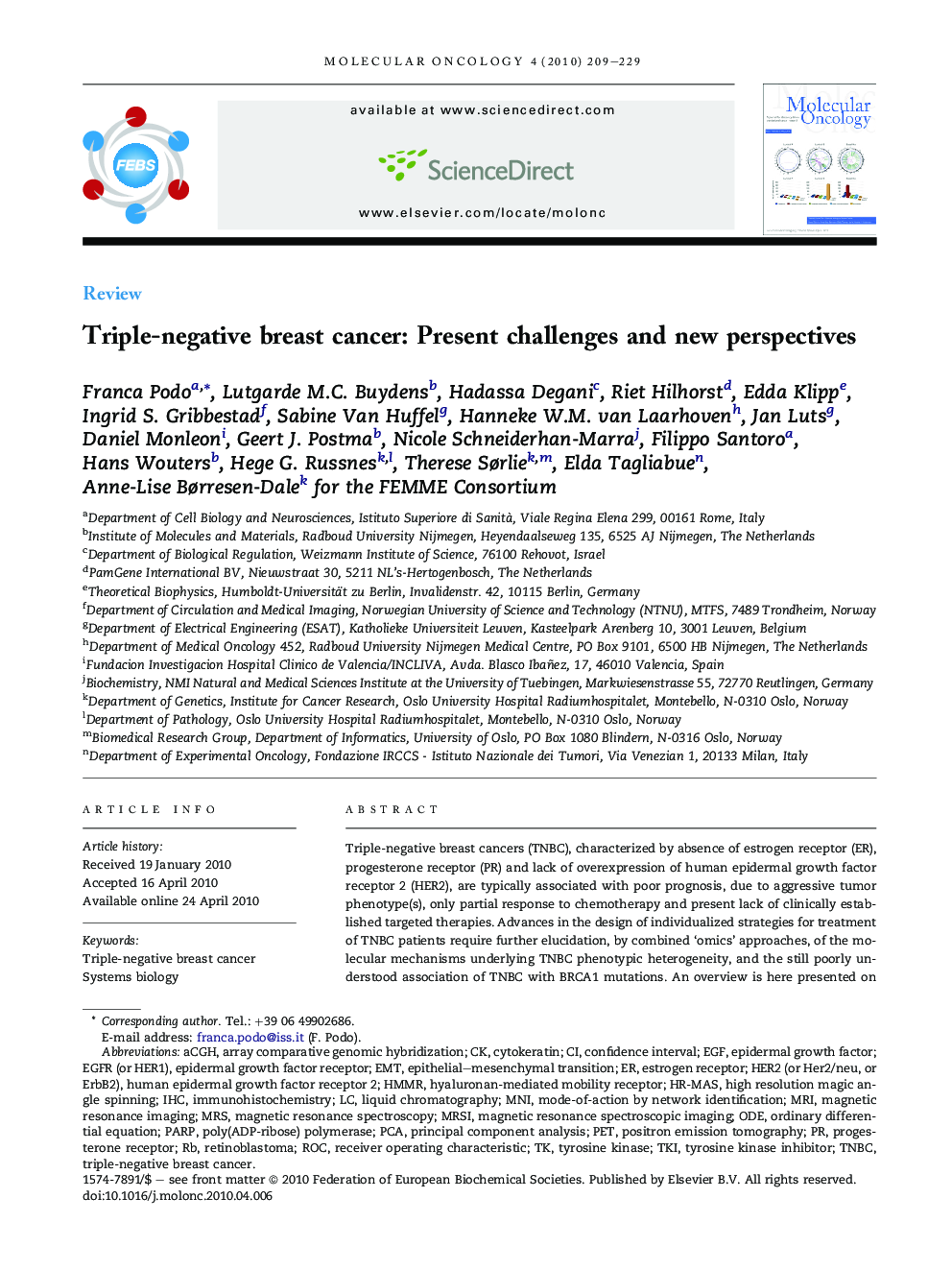| Article ID | Journal | Published Year | Pages | File Type |
|---|---|---|---|---|
| 2145744 | Molecular Oncology | 2010 | 21 Pages |
Triple-negative breast cancers (TNBC), characterized by absence of estrogen receptor (ER), progesterone receptor (PR) and lack of overexpression of human epidermal growth factor receptor 2 (HER2), are typically associated with poor prognosis, due to aggressive tumor phenotype(s), only partial response to chemotherapy and present lack of clinically established targeted therapies. Advances in the design of individualized strategies for treatment of TNBC patients require further elucidation, by combined ‘omics’ approaches, of the molecular mechanisms underlying TNBC phenotypic heterogeneity, and the still poorly understood association of TNBC with BRCA1 mutations. An overview is here presented on TNBC profiling in terms of expression signatures, within the functional genomic breast tumor classification, and ongoing efforts toward identification of new therapy targets and bioimaging markers. Due to the complexity of aberrant molecular patterns involved in expression, pathological progression and biological/clinical heterogeneity, the search for novel TNBC biomarkers and therapy targets requires collection of multi-dimensional data sets, use of robust multivariate data analysis techniques and development of innovative systems biology approaches.
